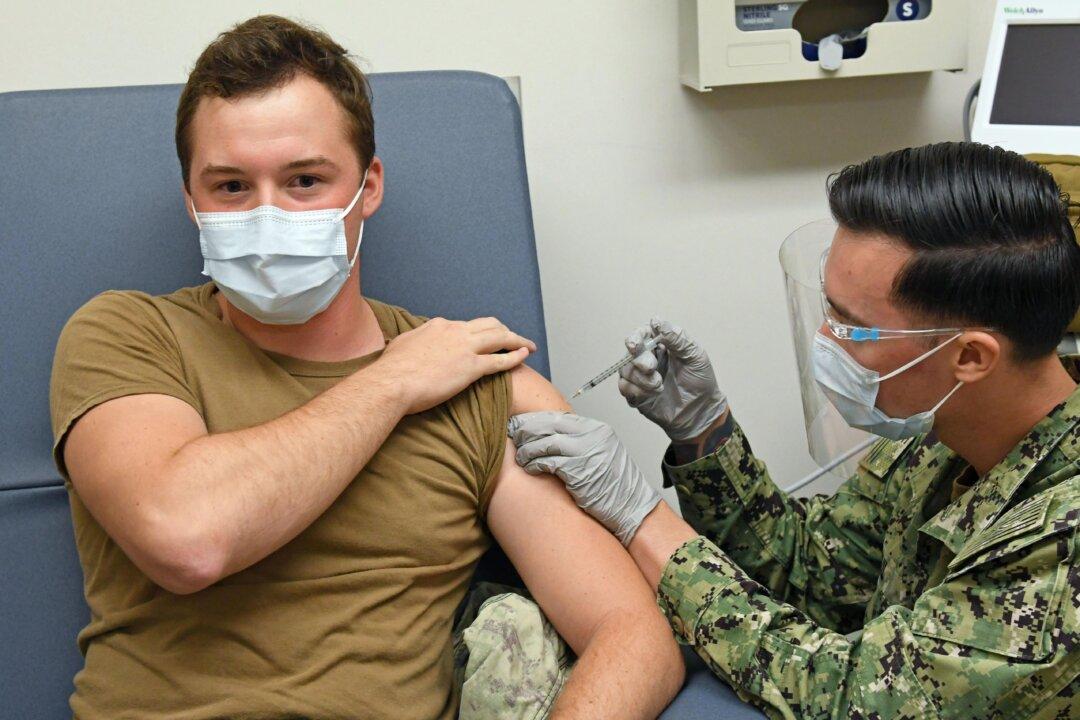The U.S. House of Representatives on Dec. 6 included a provision that terminates the military’s COVID-19 vaccine mandate in its defense funding bill.
The new National Defense Authorization Act (NDAA) (pdf) states that “Not later than 30 days after the date of the enactment of this Act, the Secretary of Defense shall rescind the mandate that members of the Armed Forces be vaccinated against COVID-19 pursuant to the memorandum dated August 24, 2021, regarding ‘Mandatory Coronavirus Disease 2019 Vaccination of Department of Defense Service Members.’”





